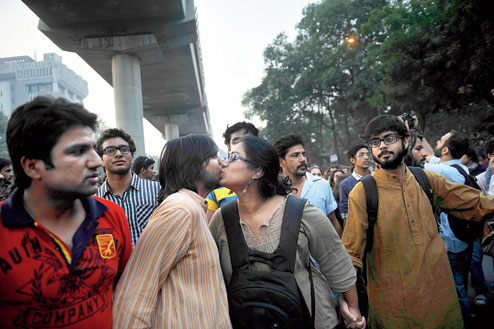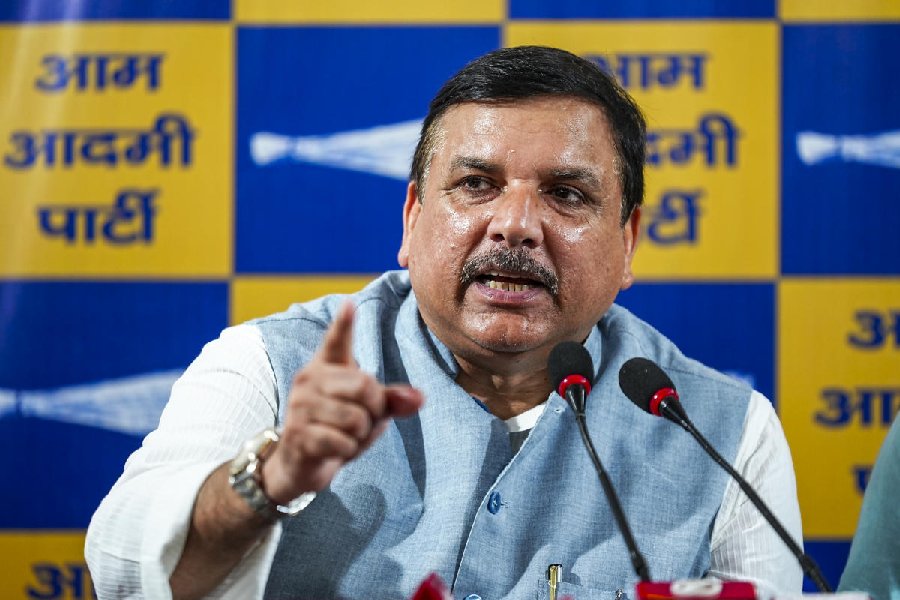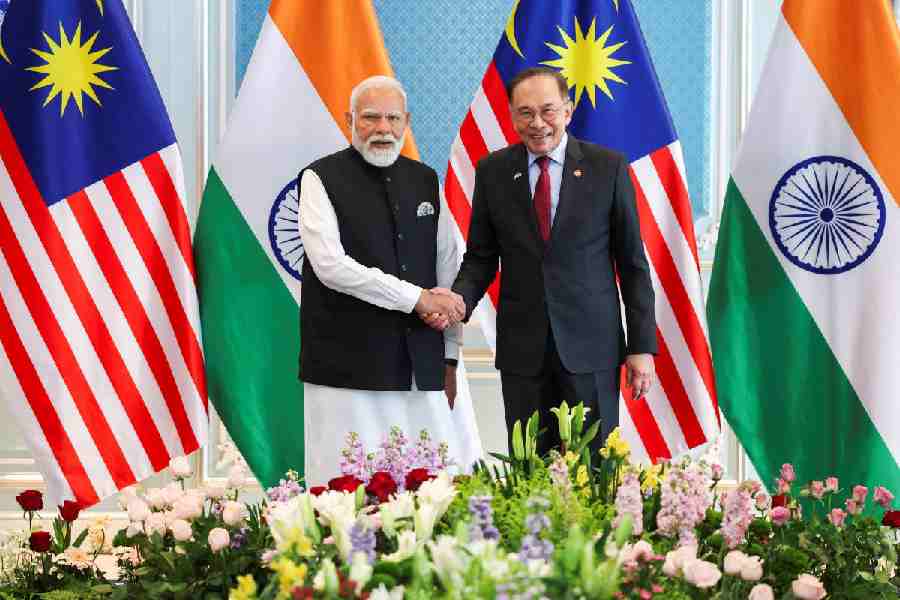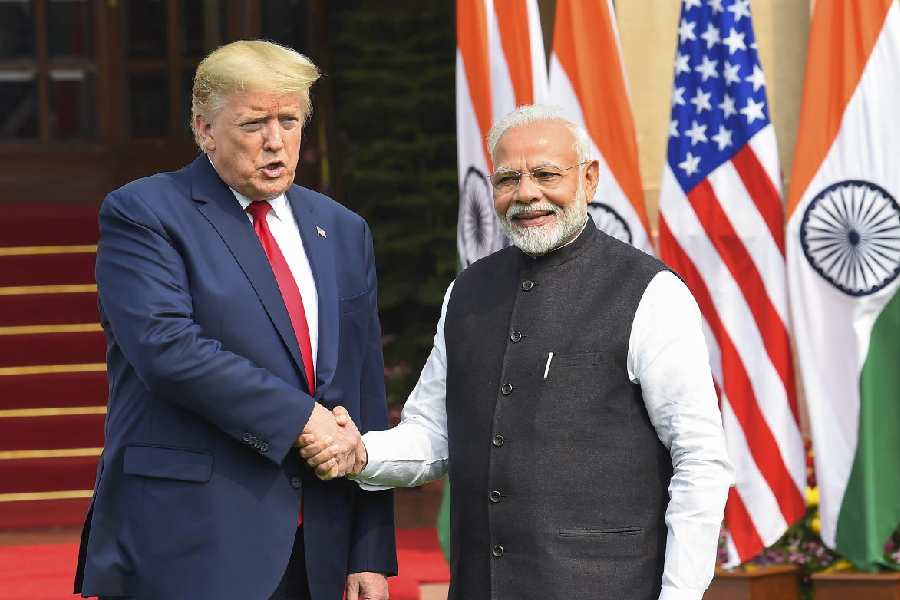 |
| GOING PUBLIC: Activists and students in Delhi during the Kiss of Love campaign against moral policing |
As young people pucker up to silence the moral police — amidst threats of rape, violence and death — with their Kiss of Love campaign in Bangalore this Sunday, one man smiles smugly.
“I have never kissed my wife or held her hands in public,” says Rajesh Tiwari, a Vishwa Hindu Parishad lawyer in Godhra. “I have my house to do it,” he justifies.
And what about those who don’t have the luxury to kiss at home? “It’s not the government’s duty to build people houses,” Tiwari replies.
People like Tiwari will try and have you believe that they’re safeguarding Bharatiya sanskriti or Indian tradition. If you think otherwise, watch out. For if you get them annoyed — a seemingly innocuous verb with legal sanction to object to an “obscene” act in public — you could land in jail for up to three months, courtesy Section 294 of the IPC.
That’s not all. According to Section 292, a book or work of art could be termed obscene if proven to be “lascivious” or appeals to “prurient interests” or “depraves or corrupts”. So one who creates, possesses, exhibits, sells or distributes such a work could be punishable with a two-year jail sentence and Rs 2,000 for a first time offence and five years in jail and Rs 5,000 for repeated offences.
However, proving that two or more people are doing something obscene in public is not easy, points out Vasant Dhoble, assistant commissioner of police of the Mumbai crime branch’s technical wing.
You can dodge Section 292 if you can prove that your book, pamphlet, paper, writing, drawing, painting, representation or figure is in the interest of science, literature, art, learning, general concern or religion, the last of which saved the amorous Khajuraho sculptures from landing in a compromising position.
The problem with the law is that obscenity is subjective. Take D.H. Lawrence’s Lady Chatterley’s Lover. The novel, cleared by the Old Bailey in England of obscenity charges, did not pass muster with India’s Supreme Court in 1964.
“There was no loss to society if there was a message in the book; the divagations with sex are not a legitimate embroidery but they are the only attractions to the common man,” ruled the apex court in the Ranjit D. Udeshi vs State of Maharashtra case, dismissing the review petition filed by Happy Bookstall, the stockists of Lady Chatterley’s Lover, which argued on the basis of the constitutional guarantee of freedom of speech and expression.
Justice Hosbet Suresh, who retired from the Bombay High Court, had protested this judgment with the legal fraternity at the time. It was unfair that temples were allowed exemption under the IPC but a piece of literature like Lady Chatterley’s Lover wasn’t, he says.
“It is all so subjective and therefore dangerous; and there is no objective method for even judges to judge such cases,” says the retired judge. “Society is changing and our IPC needs to be amended.”
A few judges, however, do see through rogue petitions.
Last July, the Supreme Court, while upholding the Bombay High Court’s judgment to allow dance bars to function, demolished the moral high ground of the state of Maharashtra that in 2005 had amended the Bombay Police Act, 1951, to push dance bars off the floor.
“A large number of imaginative alternative steps could be taken instead of completely prohibiting dancing, if the real concern of the state is the safety of women,” the apex court said.
The judgment showed how society has moved over the years. Two decades ago, the Kerala High Court had ruled in the K.P. Mohammed vs State of Kerala and others case: “The performance of cabaret dance devoid of nudity judged according to Indian standards and traditions is permissible and not in any way banned or prevented.”
In 2009, the Delhi High Court dismissed a petition against a kissing couple, saying that it was “inconceivable how the expression of love by a young married couple would attract the offence of obscenity and trigger the coercive process of law.”
But activists would argue that marriage has nothing to do with a kiss either. The scores of young Indians who have been kissing in public as part of a wide campaign, in fact, want to stress that there should be freedom to kiss. The campaign had kicked off in Kerala when a mob vandalised a café in Kozhikode after a television channel beamed pictures of young couples kissing and hugging each other there two months ago. After that, groups of people started kissing in protest against what they saw as moral policing.
The campaign’s most visible and rabid opponent, Pramod Muthalik, chief of Sri Ram Sene, views it differently. “These protestors are using sex to protest against the moral police and not to attain moksha. It is not a part of our Bharatiya sanskriti, but they are being backed by communists and Christian lobbies in India and abroad,” he says.
But the issue of what is obscene crops up again when Muthalik is asked about the Khajuraho statues, which depict sex in various positions.
“We do not view the Khajuraho statues from a sexual angle as they are placed in front of a temple,” he says. “This shows sex has been given a sacred place. Sex is on the way to achieving moksha (salvation).”
Not always, though. “A kiss is the first step to sex,” Tiwari argues. “It disturbs me to see a man and woman — it does not matter if they are friends, lovers, married couples or siblings — kissing or expressing physical affection in public. I fear that in this disturbed state I could hurt somebody on the road or my family at home,” he says.
But if there is a law against obscenity — however confusing it may be — why should mobs go to the streets to police the people?
“When the police do not do their job, the people have to come forward and take action,” says Muthalik. He also believes that the kissers have little public support. “Ninety per cent of society is with me. Will any parent send their children to the campaign?”
At the time of going to press, over 300 people said they were going to the event announced on the Kiss of Love Facebook page. Add to that Muthalik and his kissing cousins.











